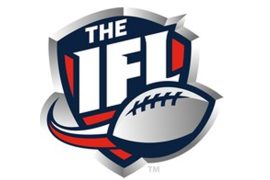WHO is urging governments to enforce bans on tobacco advertising, promotion and sponsorship at sporting events, including when hosting or receiving broadcasts of Formula 1 and MotoGP events.
WHO also urges all sporting bodies, including Formula 1 and MotoGP, to adopt strong tobacco free policies that ensure their events are smoke-free and their activities and participants, including race teams, are not sponsored by tobacco companies.
These calls come In light of tobacco companies establishing new partnerships with motor-racing teams. British American Tobacco (BAT) recently announced “a new global partnership” with the Formula 1 team McLaren using the logo “a better tomorrow.” In making this announcement, BAT indicated that the multi-year partnership will provide a global platform to drive greater resonance of certain products, including glo, a heated tobacco product. This statement suggests that the company’s intent is to promote tobacco use.
In the case of Philip Morris International (PMI), the company has created a new logo (Mission Winnow) to be carried by Ferrari on cars, and Ducati on motorbikes, that previously carried branding for the cigarette brand Marlboro. PMI has also registered the Mission Winnow logo as a trademark, including for use with respect to tobacco products. Ducati carried this branding at a recent MotoGP.
Comprehensive bans on tobacco advertising, promotion and sponsorship reduce the consumption of tobacco products, including among young people. Article 13 of the WHO Framework Convention on Tobacco Control (WHO FCTC) obliges Parties to the Convention to implement a comprehensive ban (or restrictions) on tobacco advertising, promotion and sponsorship. The definitions of “tobacco advertising and promotion” and “tobacco sponsorship” are broad and cover activities with the effect or likely effect of promoting a tobacco product or tobacco use either directly or indirectly.
The actions of the companies result in advertisement and promotion of tobacco products and tobacco use to the world at large, including young people. Tobacco product advertising and promotion occurs both in countries that host events and in countries that receive transmissions of these events.
WHO urges governments to implement their domestic laws banning tobacco advertising, promotion and sponsorship in the strongest possible ways. This may include issuing penalties applicable under domestic laws and taking preventative action, such as by preventing screening of events that violate domestic laws.
Disclaimer:
The information contained in this article is for educational and informational purposes only and is not intended as a health advice. We would ask you to consult a qualified professional or medical expert to gain additional knowledge before you choose to consume any product or perform any exercise.






